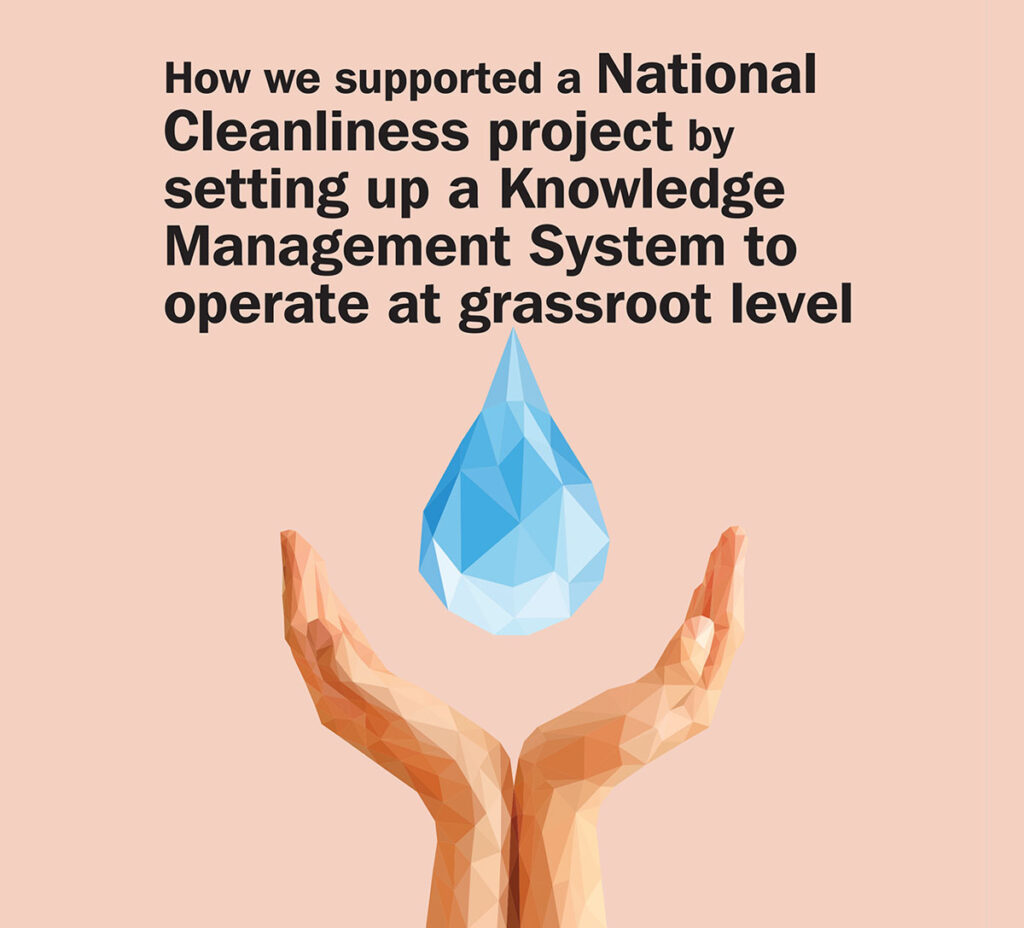
How we supported a National Cleanliness project by setting up a Knowledge Management System to operate at grassroot level

Synopsis:
The Swachh Bharat Mission was the largest cleanliness drive of the Government of India. The concept of a Swachh India was aspirational owing to the diversity our country has. While good things were practiced in pockets the objective was to transfer these to other stakeholders.
The Mission partnered with a Multi-Lateral Agency to devise a solution which is easy to implement at scale as well as sustainable.

The Situation:
India is a very diverse nation with a huge variety in terms of cultural norms, behaviours and the way we solve problems. Add to this, the water availability and soil conditions complicate matters even more when it comes to ensuring a Swachh India.
Research had shown that people in Rural India learn from others like them, preferably from their own village or the neighbouring village, perhaps the block and at best, the district. The Multi-Lateral Agency had advised the Government Mission to put together a Knowledge management platform of video stories gathered from the ground in the native language, so that various stakeholders ranging from citizens, block officers, state officers and central team, besides NGOs could learn from one another.

The Solution:
We put together a knowledge management platform using Open-source technologies – Drupal Content Management System & Alfresco Document Management System, aligned with the Multi-Lateral Agency’s organizational knowledge sharing framework. We helped put together a taxonomy tree of topics and sub-topics for easy navigation of users of the platform to what they seek. Additionally, using tags which contextualize the knowledge asset allowing learners to search and identity relevant knowledge assets that could be of best value for them in their geography, given their operational constraints. We also put together the first 100 video stories by capturing these on the ground in various districts of Rajasthan and trained a large number of department staff to be able to scale this up. The platform also serves as a repository of content stored in different formats such as videos, documents, link and presentations. There is an Expert database that has been integrated with the taxonomy tree along with geographical tags to help functionaries in different parts of the country to reach out to specific expertise. Site Analytics were made available to track the hits/ downloads/Views using Google Analytics. Dashboards displaying district wise, state wise, nation wise, period wise, resource wise reports can be generated. The site was hosted for a period of time before being ported onto the Government servers.

The Impact:
The first 100 video stories and the capacity building of specific staff, helped scale the platform to record over a 1000 knowledge assets.



